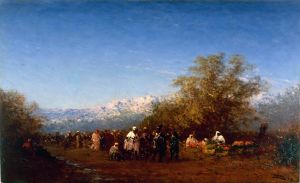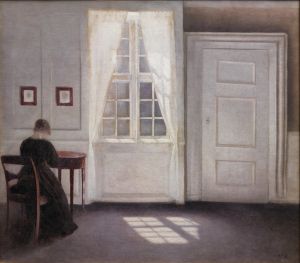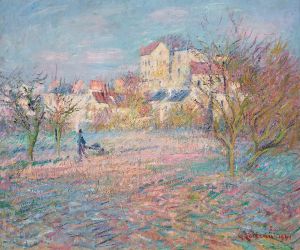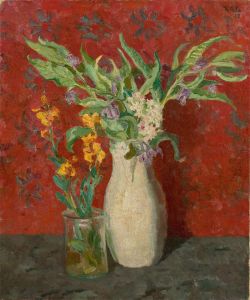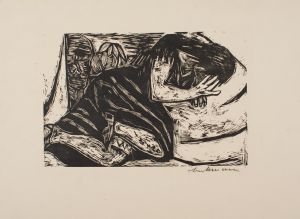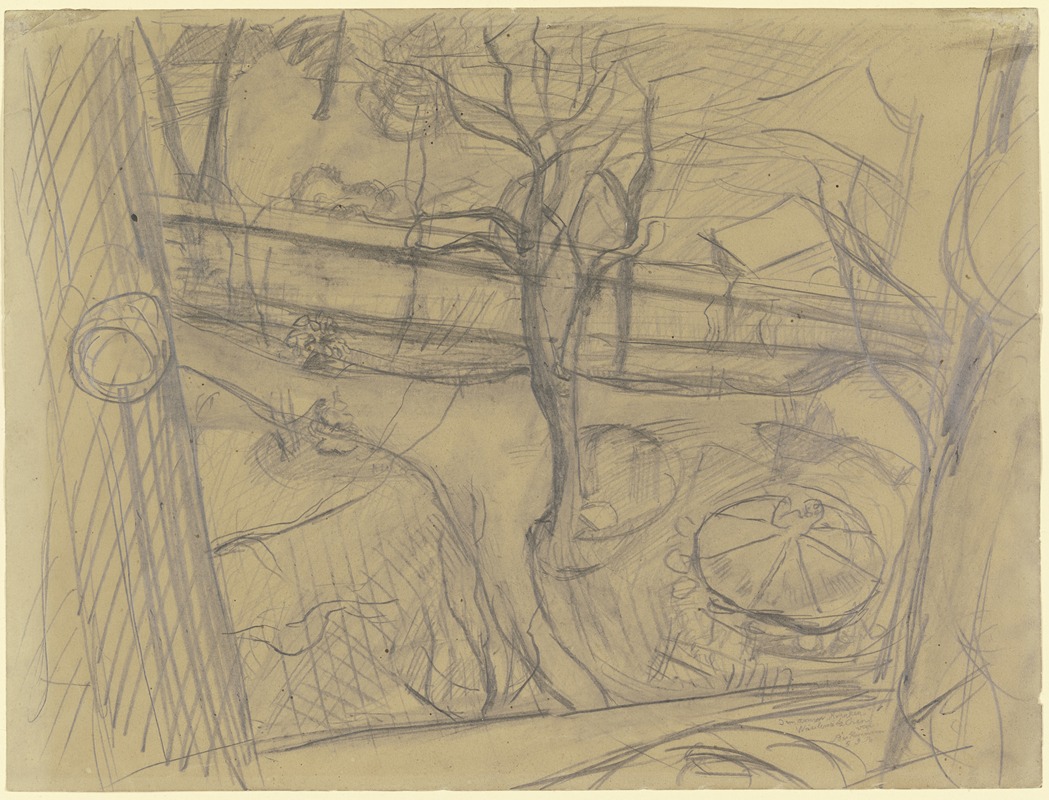
View of a Garden from a Window
A hand-painted replica of Max Beckmann’s masterpiece View of a Garden from a Window, meticulously crafted by professional artists to capture the true essence of the original. Each piece is created with museum-quality canvas and rare mineral pigments, carefully painted by experienced artists with delicate brushstrokes and rich, layered colors to perfectly recreate the texture of the original artwork. Unlike machine-printed reproductions, this hand-painted version brings the painting to life, infused with the artist’s emotions and skill in every stroke. Whether for personal collection or home decoration, it instantly elevates the artistic atmosphere of any space.
Max Beckmann's "View of a Garden from a Window" is a notable work by the German painter, who is renowned for his contributions to the Expressionist movement. Beckmann was born in 1884 in Leipzig, Germany, and his career spanned a tumultuous period in European history, including both World Wars. His art often reflects the complexities and emotional intensity of the era.
"View of a Garden from a Window" is an example of Beckmann's ability to blend realism with expressionist elements, capturing not just a scene but the emotional resonance of the moment. While specific details about the painting's creation, such as the exact year it was painted or its current location, are not widely documented, the work is consistent with Beckmann's style during the early to mid-20th century.
Beckmann's paintings often feature bold colors and strong lines, and he had a unique ability to convey depth and emotion through his compositions. In "View of a Garden from a Window," Beckmann likely used these techniques to transform a simple view into a complex narrative. The painting would typically depict a garden scene as seen from an interior space, inviting viewers to contemplate the relationship between the inside and outside worlds, a recurring theme in Beckmann's work.
Throughout his career, Beckmann's art was influenced by his personal experiences and the socio-political climate of his time. He lived through the rise of the Nazi regime, which labeled his work as "degenerate art," leading him to leave Germany in 1937. He spent time in Amsterdam before eventually moving to the United States in 1947, where he continued to paint and teach until his death in 1950.
Beckmann's work is characterized by a sense of introspection and a search for meaning amidst chaos. His paintings often explore themes of identity, existentialism, and the human condition, reflecting his philosophical interests and his response to the world around him. "View of a Garden from a Window" can be seen as part of this broader narrative, where the garden might symbolize a space of refuge or contemplation, contrasting with the often turbulent world outside.
Max Beckmann's legacy is significant in the history of modern art. His works are housed in major museums around the world, and he is celebrated for his distinctive style and profound impact on 20th-century art. "View of a Garden from a Window" contributes to this legacy, offering insight into Beckmann's artistic vision and the themes that preoccupied him throughout his life.
In summary, while specific details about "View of a Garden from a Window" are limited, the painting is emblematic of Max Beckmann's broader oeuvre. It reflects his mastery of expressionist techniques and his ability to infuse everyday scenes with deeper meaning, making it a valuable piece for understanding his artistic journey and the historical context in which he worked.






